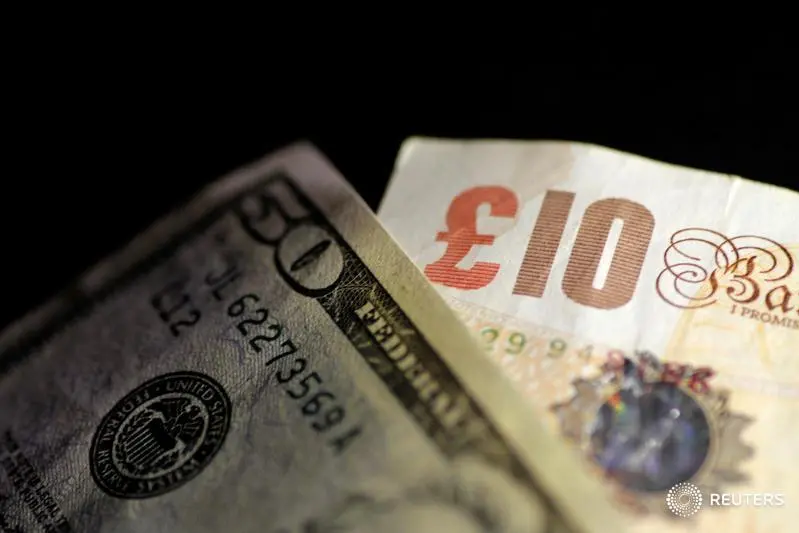PHOTO
LONDON - The British pound drifted near more than three-week lows against the dollar on Tuesday as investors assessed geopolitical risks in the Middle East and the next steps in the Bank of England's easing cycle.
Sterling tumbled last week after BoE Governor Andrew Bailey was quoted as saying the central bank might move more aggressively to lower borrowing costs.
The pound firmed to $1.30945, about 2.5% below its more than two-and-a-half year peak in late-September when speculation about a slower easing cycle from the BoE boosted its appeal versus most major currency pairs.
"With inflation remaining stubbornly high, the real economy picking up and the prospect of a more stable government, we expect the pound to remain well supported in the coming months," said Michael Pfister, FX analyst at Commerzbank.
"However, recent comments from the BoE have increased the risks, and it remains to be seen whether the hopes associated with the change of government will be realised."
The euro ticked 0.1% higher to 83.92 pence.
Latest data showed British shoppers faced increased pressure on their budgets last month after grocery price inflation edged higher.
"Sterling looks to be under more pressure, with GBP-USD slipping below 1.31 ahead of UK monthly GDP figures and industrial production data on Friday," strategists at Unicredit said in a note.
The usually more market-moving releases, including UK jobs data and the consumer price index report, are due next week.
Later in the month, investors will look to the first tax-and-spending budget statement on Oct. 30 from the new Labour government of Prime Minister Keir Starmer.
Finance minister Rachel Reeves needs to strike a positive tone at her first budget in order to give businesses the confidence to invest, the Confederation of British Industry said on Tuesday.
(Reporting by Medha Singh in London Editing by Mark Potter)





















